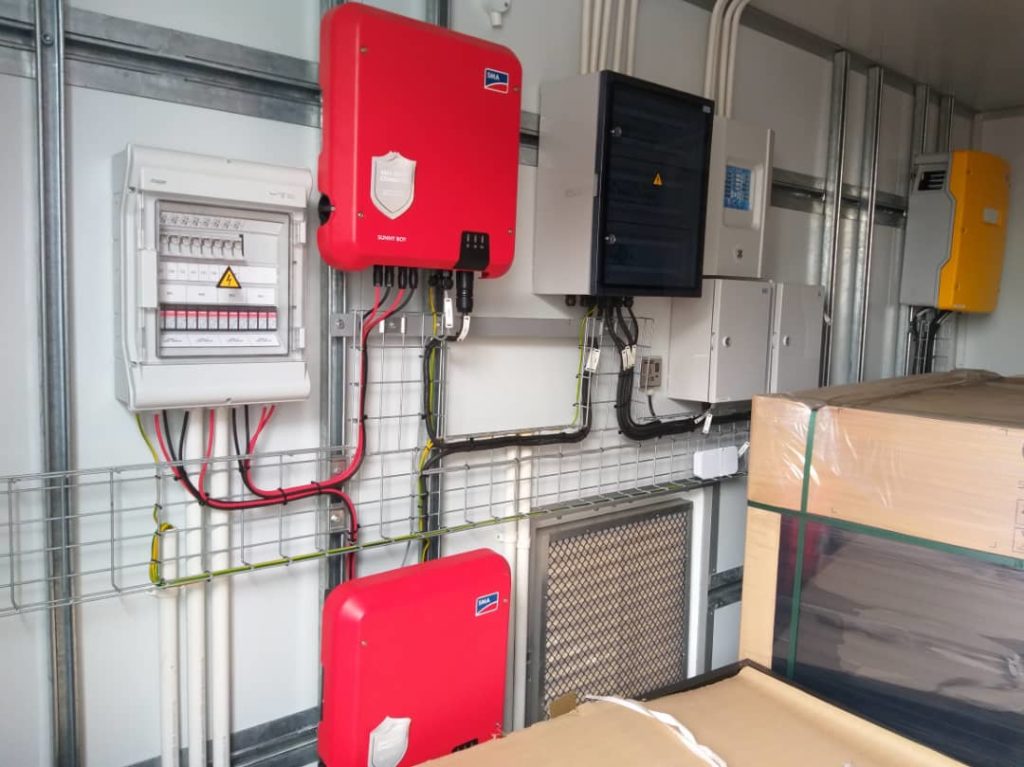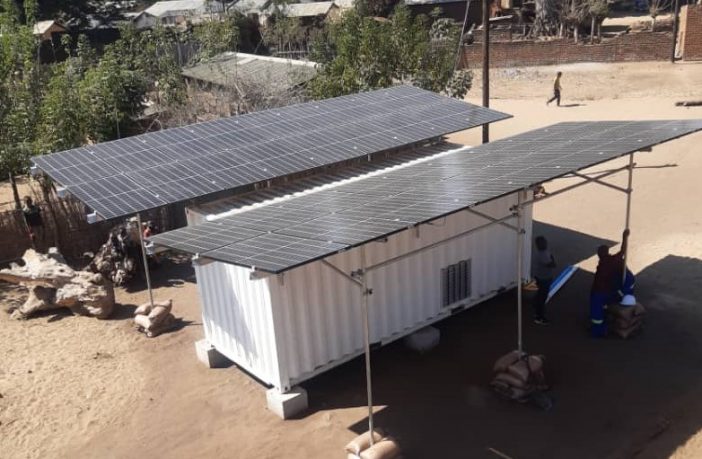- The first SustainCompact™ containerized solar generation unit was commissioned last month in Malawi as a mini-grid, under the Rural EASE (Energy Access through Social Enterprise and Decentralization) project.
- The project was funded by the Scottish Government in collaboration with University of Strathclyde in Glasgow and United Purpose, an international development and emergency relief organization headquartered in the UK.
Bringing a stable and low carbon electricity provision to the previously unconnected village of Mthembanji, Dedza District, this mini-grid will be the first experience of wired household electricity and has potential for significant social and economic impact in the village.

Pic credit: SustainSolar
A higher impact than solar home systems
The 12kW solar generation unit provides high-quality 220 V power to 60 customers for domestic and commercial use including lights, phone charging, TVs, fridges as well as other productive uses. Being the first of its kind in Malawi, the mini-grid is cheaper, quicker to implement and potentially more financially sustainable than larger capacity mini-grids currently deployed in the country. This new method of rural electrification also allows for more electricity and a higher impact than the solar home systems offered on the market.
Having designed the system architecture and a sustainable business model, Strathclyde and United Purpose worked with SustainSolar, Malawian electrical contractor BNG Electrical and smart meters provider Steamaco (UK) to complete the mini-grid installation. Packed in an insulated 20 ft shipping container, the system comprises quality inverters and lithium ion batteries from German manufacturers SMA and Tesvolt. The SMA online portal allows for remote access to system performance and generation output, as well as alerting system managers to any problems to provide swift troubleshooting on the ground.
Mini-grids as a clear pathway on the road to Malawi’s energy future
Following the system’s installation, the site was visited by representatives from the Malawi Energy Regulatory Authority (MERA), who were impressed with the quality of the installation and innovative technology used in the system. MERA approval has been granted for the sales of electricity which has now begun. Mini-grids are a clear pathway on the road to Malawi’s energy future. The Government of Malawi recognizes the country’s energy challenge of less than 10% of the population being connected to the national grid and outlines support for mini-grids to achieve their rural electrification targets in the Energy Policy (2018). This installation marks the first step in a new social enterprise strategy to provide sustainable energy access to 1 million people over the next 10 years and contributes to Malawi’s sustainable development goal 7 target of universal access to secure, reliable and affordable energy.
In the meantime, the community in Mthembanji continues to enjoy the benefits of stable and reliable electricity provision. For most of the microgrid customers, this will be a life changing moment, being able to switch on the lights for the first time.
Author: Bryan Groenendaal
Source: SustainSolar















